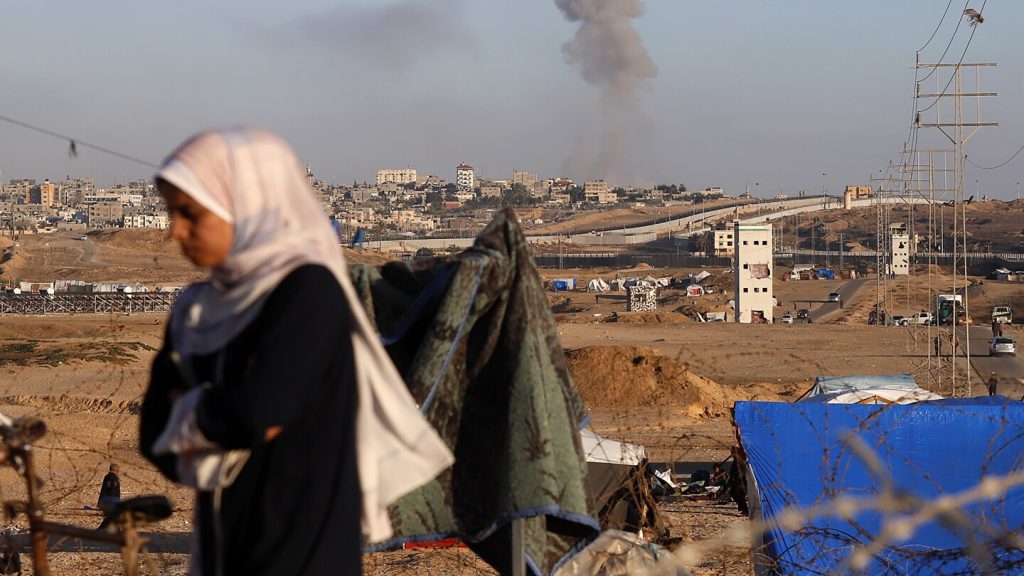Tens of thousands of displaced Palestinians in Rafah, Gaza Strip have been forced to evacuate as Israel seizes control of the nearby border crossing with Egypt, leaving the population in a state of chaos and uncertainty. The main hospital in Rafah has shut down, leaving residents without access to proper healthcare. Aid workers are struggling to provide assistance to the desperate population, who have been relying on aid for basic necessities after seven months of war.
The overcrowded city of Rafah, which had a population of 250,000 before the war, has seen its numbers swell to over 1.4 million as people from across Gaza have fled there for safety. With every available space filled with tent camps and families crammed into schools and homes, the situation in Rafah has become dire. Israel issued evacuation orders for eastern parts of the city and sent tanks to seize the nearby Rafah crossing with Egypt, cutting off vital supplies and aid.
As international efforts continue for a cease-fire, the uncertainty in Rafah has led to a mass exodus of residents, with many fleeing to other districts and cities in Gaza. Tent camps have disappeared in some areas of Rafah only to reappear further north along main roads. The situation in nearby Muwasi, where Israel has declared a “humanitarian zone,” is already dire with inadequate facilities and limited resources for the influx of displaced people.
The lack of access to clean water in Gaza has become a major concern, with sanitation facilities and clean water sources in short supply. Aid workers report that the water quality is extremely poor, leading to high levels of dehydration and waterborne illnesses. The shortage of tents and basic supplies has further exacerbated the crisis, with families struggling to find shelter and basic necessities for survival.
The closure of border crossings and the lack of incoming supplies has crippled humanitarian operations in Gaza, putting the population at risk of starvation, dehydration, and lack of medical care. Aid groups warn that hospitals and humanitarian operations could shut down within days if supplies are not replenished. The reopening of the Kerem Shalom crossing by Israel has not led to the influx of aid trucks, leading to further delays in essential supplies reaching Gaza.
The situation in Gaza remains precarious, with residents facing a humanitarian crisis as they are forced to flee their homes and seek shelter in overcrowded and undersupplied areas. International efforts for a cease-fire are ongoing, but the immediate needs of the displaced population must be addressed urgently to prevent further loss of life and suffering. Aid organizations are calling for increased support and resources to assist the thousands of Palestinians who have been displaced by the ongoing conflict.


